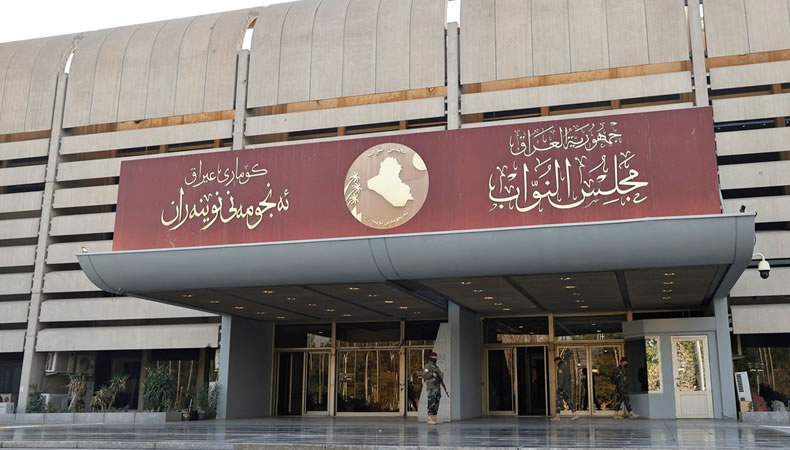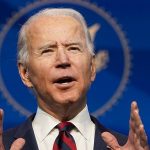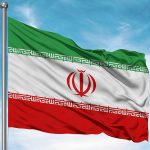The new Iraqi parliament holds its first session amid political differences


According to Article 55 of the constitution, the deputies shall elect, in the first session, a speaker, then a first deputy, and a second deputy, by an absolute majority of the number of members of the Council. The session was scheduled to start at 11:00 local time, but it was delayed for a few hours, due to political differences between the most prominent Shiite forces, the Sadrist movement on the one hand, and the coordinating framework forces loyal to Iran on the other hand, as intense deliberations took place before the session outside the parliament hall.
Prompted by his possession of the largest number of seats (73 out of 329), al-Sadr repeatedly reiterated his insistence on forming a “majority government,” which would break with the political tradition of consensus among the major Shiite parties. It seems that the Sadrist movement is heading for an alliance with prominent Sunni and Kurdish blocs in order to obtain an absolute majority (half plus one of the members of Parliament), naming a prime minister, which custom requires that he be Shiite.
Related Posts
Al-Sadr said in a tweet on the eve of the session, ‘Today there is no place for sectarianism and no place for ethnicity. Rather, a national majority government.’ On the other hand, other Shiite parties that are part of the coordination framework, including forces loyal to Iran, are pushing for a consensual government in which all Shiite parties, which have dominated the political scene in the country since the fall of Saddam Hussein’s regime in 2003, share positions and shares.
The coordination framework includes the Al-Fateh Alliance representing the Popular Mobilization, which won only 17 seats, compared to 48 in the previous parliament, as well as the State of Law coalition headed by former Prime Minister Nuri al-Maliki (33 seats). For several weeks, the forces loyal to Iran stressed their rejection of the election results and submitted an appeal to the Federal Court to cancel them, but the court dismissed the case.
Its supporters demonstrated in front of the gates of the Green Zone for weeks, denouncing the results, while tension in the country reached its climax with the assassination attempt on Prime Minister Mustafa Al-Kazemi in November. Amid the inability of the prominent Shiite parties to agree, the head of the Center for Political Thinking and Iraqi researcher Ihsan Al-Shammari believes that this indicates that ‘the form of the next government may be according to a new principle, which is the so-called consensus of the majority. It is a coalition government, but in a new format,’ unlike previous governments where all parties have participated .
He explains, ‘We may be facing a new concept called majority consensus, meaning that al-Sadr will ally with the Sunni house represented by determination and progress, and with the Kurdish political house (the Democratic Party and the Patriotic Union), and even part of the coordination framework may join with Muqtada al-Sadr’s project.’ The new deputies began arriving in the parliament hall, successively, in preparation for the start of the session, which will be chaired by the oldest MP, Mahmoud al-Mashhadani (73 years), a deputy from the Sunni Azm Alliance (14 seats).
After the deputies take the constitutional oath before the President of the Supreme Judicial Council, it is scheduled to open the door for nominations for the presidency of the Council of Representatives and its two deputies. The custom requires that the Speaker of the House of Representatives be a Sunni, one of his deputies a Kurd and the other a Shiite, and they are elected by an absolute majority.
The 41-year-old former parliament speaker and leader of the Sunni ‘Progress’ alliance, Muhammad al-Halbousi, with 37 seats, is among the most likely to win the position again, but things may change at the last minute in a country where the distribution of positions is based on bargaining and quotas. Parliament is supposed to elect, after its first session, within 30 days, a new president of the republic, who must, in turn, designate a prime minister, within 15 days from the date of his election, to be the candidate of the ‘largest parliamentary bloc’, according to the constitution. As of the day he is appointed, the new prime minister has 30 days to form the government.
The number of women in the new parliament is 95, compared to 75 in the previous parliament. Parliament also includes two independent blocs. The first includes 28 deputies from the Emtada movement, which emanates from the protest movement and the Kurdish New Generation Movement, and the second includes nine deputies from the ‘Ishraqa Kanon’ bloc and independents. Most of them enter parliament for the first time.









